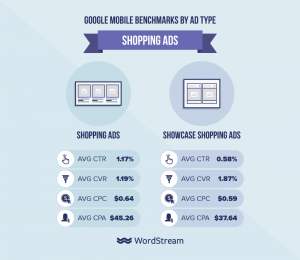As humans, we loathe the unknown and feel an inner urge to explain, imagine, and predict. In business, accurate forecasts often present the difference between achieving success and struggling to stay afloat.
After a year plagued with the pandemic, societal upheavals, and economic crisis, it might seem nearly impossible to have any clear image of the future. That kind of uncertainty can trigger fear and poor decision-making.
But challenging times aren’t an unsurpassable obstacle. Instead, they are an opportunity, and many successful organizations found a safe haven in HR technology.
High-tech solutions allow businesses to navigate the post-pandemic realm with more ease and use a data-driven approach to gear their strategies toward desirable outcomes. A 2021 Gartner research shows that even though one-third of HR leaders plan for budget cuts until the end of the year, 90 percent still remains determined to increase their investment in technology.
Plus, COVID-19 and lockdowns changed the work environment and expectations, requiring modern technologies. According to Josh Bersin, new demands for well-being, telework, embedded analytics, and video create a need for advanced solutions and products.
If you still wonder whether investing in HR technology would be a good idea, here are the five reasons why other companies are already doing it.
Top 5 Reasons Why Successful Organizations Invest in HR Technology and AI
- HR Technology Enables Safe Remote Work
Not everyone is happy about it, but remote work is here to stay, and employees expect to work from home at least a few days of the week. Companies have to address this need and provide their staff with a safe virtual environment.
In that way, HR tech is turning into remote work tech. Although it might not accommodate telework directly, these platforms are responsible for ensuring compliance, data privacy, material, and content security.
Besides, HR technology is a liaison in remote employee training, learning, and development. It also provides managers with essential workforce analytics that help improve telework protocols and employee experience.
- Money and Time-saving
HR professionals who rely on manual solutions to perform their work spend hours on time-consuming tasks. They often invest valuable time in document transfers, background checks, and assessment. That is the time they could have spent developing talent attraction strategies.
Although business leaders tend to dread any investments after 2020, purchasing HR technology could save both finances and precious time.
Hence, HR digital platforms could eliminate various low-value chores that keep recruiters from dedicating themselves to human-centric assignments. By investing in ATS, resume parsers, or payroll software, business leaders could reduce repetitive tasks HR professionals have to perform.
- AI Improves the Quality of Hire
Finding qualified candidates who fit into a company culture is among the most challenging undertakings in the post-pandemic era. Many industries, such as the healthcare sector, struggle with a talent shortage and encounter difficulties attracting compatible job applicants.
Thanks to AI, human resources can accelerate this process and make it easier. HR technology based on AI algorithms provides TA teams and recruiters with invaluable information by identifying relevant metrics and measuring them.
For example, artificial intelligence helps HR professionals discover which sourcing channels are the most efficient in attracting qualified job applicants. With this HR technology, they can also improve candidate screening and remove bias from the process.
AI eliminates personal convictions, stereotypes, and perceptions from selection procedures. Instead, it focuses on job applicants’ skills, experience, and motivation. As a result, it identifies talents who match job opening requirements and company culture, improving the quality of hire.
- HR Technology Helps Promote Well-being Programs
Due to the pressure and uncertainty of the pandemic, many workers are handling more stress than ever, leading to burnout. It’s why employee wellness and mental health came to the forefront of workplaces.
Most business leaders introduced various well-being programs and benefits to help workers navigate the new realm. But if employees don’t know about these initiatives, they won’t be able to access them.
HR technology often provides holistic platforms that offer health-related surveys, assessments, and apps. Managers can also leverage them to raise awareness about mental health and ensure employees know where and how to apply for wellness programs.
- Employee Learning and Growth Platforms
Even though professional development was significant before the pandemic, nowadays it is essential for talent attraction and employee satisfaction. Most people believe their employers should provide a place for continuous learning and growth, giving them a sense of progress.
It’s where HR technology enters the picture, being a solution that offers various platforms for personal and career development. For instance, systems like the Learning Management System (LMS) provide workers with personalized training.
Business leaders can identify software that answers their employees’ needs, providing them with e-courses, e-libraries, or upskilling programs. Moreover, some HR technology based on AI offers gamification and virtual reality, which recruiters can use for digital meetings and onboarding.
Technology innovation and automation are transforming the HR landscape, creating new needs and expectations. There’s no place for outdated tools in companies that strive to provide a stellar employee experience, attract talents, and reach financial success.
HR technology and AI are the critical elements of tech evolution taking over human resources. Businesses that evolve and keep up with the times are the ones that embrace changes and find the best way to integrate new technologies into their workplaces.
Business & Finance Articles on Business 2 Community
(156)
Report Post




